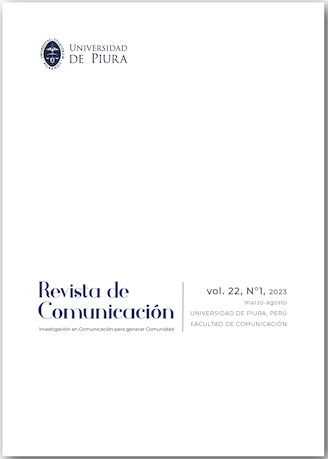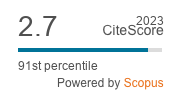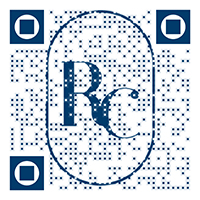Analysis of content verified by Spanish fact-checkers on Instagram
DOI:
https://doi.org/10.26441/RC22.1-2023-3089Keywords:
fact-checking, disinformation, engagement, Instagram, social mediaAbstract
In recent decades, a global fact-checking movement has emerged that aims to combat disinformation. These organizations use social media to make verified content visible. This work aims to know the characteristics of the content published by Spanish verifiers on Instagram, investigate what factors can predict interaction and evaluate the importance to their communities. For this, all the publications of the Spanish fact-checkers linked to the IFCN on Instagram during the year 2021 (n=655) have been analyzed. The data has been extracted using Crowdtangle and subsequently a content analysis, both qualitative and quantitative, has been carried out to observe how formats, themes and other variables affect user engagement. The results show that the publications related to politics and legislation have been the most published, although it is the publications on racism and xenophobia that receive the highest engagement. On the other hand, it has been observed that fact-checkers do not use Instagram as a social network to generate conversation, but rather to present their checks in a visual way.
Metrics
References
Amazeen, M. A. (2015). Revisiting the epistemology of fact-checking. Critical Review, 27(1), 1-22. https://doi.org/10.1080/08913811.2014.993890 DOI: https://doi.org/10.1080/08913811.2014.993890
Amoedo, A., Vara-Miguel, A., Negredo, S., Moreno, E. y Kaufman, J. (2021). Digital News Report España 2021. Center for Internet Studies and Digital Life. https://bit.ly/3EclOje
Andersen, J. y Søe, S. O. (2020). Communicative actions we live by: The problem with factchecking, tagging or flagging fake news – the case of Facebook. European Journal of Communication, 35(2), 126–139. https://doi.org/10.1177/0267323119894489 DOI: https://doi.org/10.1177/0267323119894489
Bernal-Triviño, A. y Clares-Gavilán, J. (2019). Uso del móvil y las redes sociales como canales de verificación de fake news. El caso de Maldita.es. Profesional De La información, 28(3). https://doi.org/10.3145/epi.2019.may.12 DOI: https://doi.org/10.3145/epi.2019.may.12
Blanco-Alfonso, I., Chaparro-Domínguez, M.Á. y Repiso, R. (2021). El fact-checking como estrategia global para contener la desinformación/Fact-checking as a global strategy to fight against disinformation. Estudios sobre el Mensaje Periodistico, 27(3), 779-791 https://doi.org/10.5209/esmp.76189 DOI: https://doi.org/10.5209/esmp.76189
Brandtzaeg, P. B., Følstad, A. y Chaparro Domínguez, M. Á. (2018). How Journalists and Social Media Users Perceive Online Fact-Checking and Verification Services. Journalism Practice, 12(9), 1109-1129. https://www.doi.org/10.1080/17512786.2017.1363657 DOI: https://doi.org/10.1080/17512786.2017.1363657
Casero-Ripollés, A. (2018). Research on political information and social media: Key points and challenges for the future. Profesional De La información, 27(5), 964–974. https://doi.org/10.3145/epi.2018.sep.01 DOI: https://doi.org/10.3145/epi.2018.sep.01
Centro de Investigaciones Sociológicas [CIS]. (2021). Barómetros fusionados de enero a marzo, abril a julio y septiembre a diciembre de 2021. https://www.cis.es/cis/opencm/ES/11_barometros/depositados.jsp
Chou W. Y. S., Gaysynsky A. y Vanderpool R. C. (2021) The COVID-19 Misinfodemic: Moving Beyond Fact-Checking. Health Education & Behavior, 48(1), 9-13. https://doi.org/10.1177/1090198120980675 DOI: https://doi.org/10.1177/1090198120980675
Comisión Europea. (2018). A multi-dimensional approach to disinformation. Report of the High-Level Group on fake news and online disinformation. https://bit.ly/3N0jro1
Conde-Vázquez, E., Fontenla-Pedreira, J. y Pereira-López, M. (2020). Fake News y Fact-checking en la cobertura mediática durante la crisis del COVID-19 en España: el caso de Newtral y Maldito Bulo. Revista Ibérica De Sistemas e Tecnologias De Informação, E35, 559-571. https://bit.ly/3n4itMI
CrowdTangle Team (2022). CrowdTangle. Facebook.
Dafonte-Gómez, A., Corbacho-Valencia, J. M. y García-Mirón, S. (2021). El fact-checking en Iberoamérica: Evolución reciente y mapa de situación. En J. Sotelo González y J. González García (Eds.), Digital Media. El papel de las redes sociales en el ecosistema educomunicativo en tiempo de COVID-19 (pp. 877–889). McGraw-Hill.
Dafonte-Gómez, A., Míguez-González, M. I. y Martínez-Rolán, X. (2022). Los fact-checkers iberoamericanos frente a la COVID-19. Análisis de actividad en Facebook. Observatorio (OBS*), 16(1), 160-182. https://doi.org/10.15847/obsOBS16120221823 DOI: https://doi.org/10.15847/obsOBS16120221823
Dafonte-Gómez, A. y Baamonde-Silva, X. M. (2020). Maldito bulo: análisis de actividad e impacto en Telegram. En A.M. de Vicente-Rodríguez y J. Sierra-Sánchez, Aproximación periodística y educomunicativa al fenómeno de las redes sociales (pp. 1019-1037). McGraw-Hill.
Echevarría, B. (2016). Más ‘fact-checking’ contra la posverdad. Cuadernos de periodistas, 33, 9-16.
Ecker, U. K., Butler, L. H. y Hamby, A. (2020). You don’t have to tell a story! A registered report testing the effectiveness of narrative versus non-narrative misinformation corrections. Cognitive Research: Principles and Implications, 5(1), 1-26. https://doi.org/10.1186/s41235-020-00266-x DOI: https://doi.org/10.1186/s41235-020-00266-x
Eizabeth, J. y Mantzarlis. A. (6 de julio de 2016). The fact is, fact-checking can be better. American Press Institute. https://bit.ly/3xIAOUN
García-Marín, D. (2021). Agenda temática, metodologías e impacto de la investigación sobre desinformación. Revisión sistemática de la literatura (2016-2020). Doxa Comunicación. Revista Interdisciplinar De Estudios De Comunicación Y Ciencias Sociales, (33), 321–346. https://doi.org/10.31921/doxacom.n33a854 DOI: https://doi.org/10.31921/doxacom.n33a854
García-Marín, D. y Salvat-Martinrey, G. (2022). Viralizar la verdad. Factores predictivos del engagement en el contenido verificado en TikTok. Profesional De La información, 31(2). https://doi.org/10.3145/epi.2022.mar.10 DOI: https://doi.org/10.3145/epi.2022.mar.10
Gluck, M. (2012). Digital ad engagement: An industry overview and reconceptualization. Interactive advertising bureau (IAB). https://bit.ly/3zNxc6i
Graves, L. (2016). Boundaries Not Drawn. Journalism Studies, 19(5), 613–631. https://doi.org/10.1080/1461670x.2016.1196602 DOI: https://doi.org/10.1080/1461670X.2016.1196602
Graves, L. (2017). Anatomy of a fact check: Objective practice and the contested epistemology of fact checking. Communication, culture & critique, 10(3), 518-537. https://doi.org/10.1111/cccr.12163 DOI: https://doi.org/10.1111/cccr.12163
Guallar, J., Codina, L., Freixa, P. y Pérez-Montoro, M. (2020). Desinformación, bulos, curación y verificación. Revisión de estudios en Iberoamérica 2017–2020. Telos: Revista de Estudios Interdisciplinarios en Ciencias Sociales, 22(3), 595–613. https://doi.org/10.36390/telos223.09 DOI: https://doi.org/10.36390/telos223.09
Humprecht, E. (2019). Where ‘fake news’ flourishes: a comparison across four Western democracies". Information, Communication & Society, 22(13), 1973-1988. https://doi.org/10.1080/1369118X.2018.1474241 DOI: https://doi.org/10.1080/1369118X.2018.1474241
Humprecht, E. (2020). How do they debunk “fake news”? A cross-national comparison of transparency in fact checks. Digital Journalism, 8(3), 310-327. https://doi.org/10.1080/21670811.2019.1691031 DOI: https://doi.org/10.1080/21670811.2019.1691031
Kim, H. S., Suh, Y. J., Kim, E., Chong, E., Hong, H., Song, B., Ko, Y. y Choi, J. S. (2022). Fact-Checking and Audience Engagement: A Study of Content Analysis and Audience Behavioral Data of Fact-Checking Coverage from News Media. Digital Journalism, 10(5), 781-800. https://doi.org/10.1080/21670811.2021.2006073 DOI: https://doi.org/10.1080/21670811.2021.2006073
Lim, C. (2018). Checking how fact-checkers check. Research & Politics, 5(3). https://doi.org/10.1177/2053168018786848 DOI: https://doi.org/10.1177/2053168018786848
López-Navarrete, A., Cabrera-Méndez, M., Díez-Somavilla, R. y Calduch-Losa, Á. (2021). Fórmula para medir el engagement del espectador en YouTube: investigación exploratoria sobre los principales youtubers españoles. Revista Mediterránea de Comunicación, 12(1), 143-156. https://doi.org/10.14198/MEDCOM000013 DOI: https://doi.org/10.14198/MEDCOM000013
Lotero-Echeverri, G., Romero-Rodríguez, L. M. y Pérez-Rodríguez, M. A. (2018). Fact-checking vs. Fake news: Periodismo de confirmación como recurso de la competencia mediática contra la desinformación. Index.comunicación: Revista científica en el ámbito de la Comunicación Aplicada, 8(2), 295-316. https://bit.ly/3vPkT6p
Luengo, M. y García-Marín, D. (2020). The performance of truth: politicians, fact-checking journalism, and the struggle to tackle COVID-19 misinformation. American Journal of Cultural Sociology, 8(3), 405-427. https://doi.org/10.1057/s41290-020-00115-w DOI: https://doi.org/10.1057/s41290-020-00115-w
Magallón-Rosa, R. (2018). Nuevos formatos de verificación. El caso de Maldito Bulo en Twitter. Sphera Publica, 1(18), 41-65. https://bit.ly/3b24PXK
Máiz-Bar, C. y Abuín-Penas, J. (2022). Fact-checking en España: tipo de contenidos verificados durante la COVID-19. En A.M. de Vicente-Rodríguez y G. Bonales Daimiel, Estrategias de comunicación publicitaria en redes sociales: diseño, gestión e impacto (pp. 667-680). McGraw Hill.
Margolin, D. B., Hannak, A. y Weber, I. (2018). Political Fact-Checking on Twitter: When Do Corrections Have an Effect? Political Communication, 35(2), 196-219. https://www.doi.org/10.1080/10584609.2017.1334018 DOI: https://doi.org/10.1080/10584609.2017.1334018
Mazaira-Castro, A., Rúas-Araújo, J. y Puentes-Rivera, I. (2019). Fact-checking en los debates electorales televisados de las elecciones generales de 2015 y 2016. Revista Latina De Comunicación Social, (74), 748-766. https://doi.org/10.4185/RLCS-2019-1355 DOI: https://doi.org/10.4185/RLCS-2019-1355
Míguez-González, M. I., Abuín-Penas, J. y Seoane-Pérez, J. (2021). ¿Cómo utilizan los fact-checkers las redes sociales para combatir la desinformación? Análisis de la actividad de los fact-checkers iberoamericanos en Instagram. En M. Blanco Pérez (Ed.), El progreso de la comunicación en la era de los prosumidores (pp. 15-39). Dykinson.
Navarro-Beltrá, M. y Herrero-Ruiz, L. (2020). El engagement generado por los influencers gastronómicos: el caso de Instagram. En J. Sierra-Sánchez y A. Barrientos-Báez (coords.), Cosmovisión de la Comunicación en Redes Sociales en la Era Postdigital (pp. 357-374). McGraw-Hill.
Newman, N., Fletcher, R., Schultz, A., Andı, S., Robertson, C. T. y Nielsen, R. K. (2021). Reuters Institute Digital News Report 2021. Reuters Institute for the Study of Journalism. https://bit.ly/3xBCbo9
Paro y crisis económica siguen como principales problemas en el CIS, pero se duplica la preocupación por Covid. (20 diciembre de 2021). Europapress.es. https://bit.ly/3ZfLWFo
Pérez-Curiel, C. y Velasco Molpeceres, A. M. (2020). Impacto del discurso político en la difusión de bulos sobre Covid-19. Influencia de la desinformación en públicos y medios. Revista Latina De Comunicación Social, (78), 86-119. https://doi.org/10.4185/RLCS-2020-1469 DOI: https://doi.org/10.4185/RLCS-2020-1469
Robertson, C. T., Mourão, R. R. y Thorson, E. (2020). Who Uses Fact-Checking Sites? The Impact of Demographics, Political Antecedents, and Media Use on Fact-Checking Site Awareness, Attitudes, and Behavior. International Journal of Press/Politics, 25(2), 217-237. https://www.doi.org/10.1177/1940161219898055 DOI: https://doi.org/10.1177/1940161219898055
Rodríguez-Pérez, C. (2021). Desinformación online y fact-checking en entornos de polarización social. Estudios sobre el Mensaje Periodístico, 27(2), 623-637. https://doi.org/10.5209/esmp.68433 DOI: https://doi.org/10.5209/esmp.68433
Salaverría, R. (2020). Claves para hacer frente a la desinformación. Biko INSIGHTS, 4, 52-61.
Salaverría, R., Buslón, N., López-Pan, F., León, B., López-Goñi, I. y Erviti, M. C. (2020). Desinformación en tiempos de pandemia: tipología de los bulos sobre la Covid-19. Profesional De La información, 29(3). https://doi.org/10.3145/epi.2020.may.15 DOI: https://doi.org/10.3145/epi.2020.may.15
Seibt, T. (2020). Limites e possibilidades do fact-checking como prática social para aperfeiçoar a democracia: o Truco nos Estados nas eleições brasileiras de 2018. Index.comunicación: Revista científica en el ámbito de la Comunicación Aplicada, 10(2), 115-141. https://bit.ly/3OnuKYk DOI: https://doi.org/10.33732/ixc/10/02Limite
Sidorenko-Bautista, P., Alonso-López, N. y Giacomelli, F. (2021). Espacios de verificación en TikTok. Comunicación y formas narrativas para combatir la desinformación. Revista Latina de Comunicación Social, 79, 87–113. https://doi.org/10.4185/RLCS-2021-1522 DOI: https://doi.org/10.4185/RLCS-2021-1522
Singer, J. B. (2018). Fact-checkers as entrepreneurs: Scalability and sustainability for a new form of watchdog journalism. Journalism Practice, 12(8), 1070-1080. https://doi.org/10.1080/17512786.2018.1493946 DOI: https://doi.org/10.1080/17512786.2018.1493946
Singer, J. B. (2019). Fact-checkers as Entrepreneurs. Journalism Practice, 13(8), 976–981. https://doi.org/10.1080/17512786.2019.1646613 DOI: https://doi.org/10.1080/17512786.2019.1646613
Singer, J. B. (2021). Border patrol: The rise and role of fact-checkers and their challenge to journalists’ normative boundaries. Journalism, 22(8), 1929-1946. https://doi.org/10.1177%2F1464884920933137 DOI: https://doi.org/10.1177/1464884920933137
The Social Media Family (21 de abril de 2022). Informe de los perfiles en redes sociales de España. https://thesocialmediafamily.com/informe-redes-sociales/
Thorne J. y Vlacos A. (2018). Automated Fact Checking: Task formulations, methods and future direction. Proceedings of the 27th International Conference on Computational Linguistics (pp. 3346-3359).
Ufarte-Ruiz, M. J., Peralta García, L. y Murcia-Verdú, F. J. (2018). Fact checking: un nuevo desafío del periodismo. Profesional De La Información, 27(4), 733-741. https://doi.org/10.3145/epi.2018.jul.02 DOI: https://doi.org/10.3145/epi.2018.jul.02
Ure, M. (2018). Engagement estratégico y encuentro conversacional en los medios sociales. Revista de Comunicación, 17(1), 181-196. https://doi.org/10.26441/RC17.1-2018-A10 DOI: https://doi.org/10.26441/RC17.1-2018-A10
Vizoso, A. y Vázquez-Herrero, J. (2019). Plataformas de fact-checking en español. Características, organización y método. Communication & Society, 32(1), 127-144. https://doi.org/10.15581/003.32.1.127-144 DOI: https://doi.org/10.15581/003.32.1.127-144
Vosoughi, S., Roy, D. y Aral, S. (2018). The spread of true and false news online. Science, 359(6380), 1146-1151. https://doi.org/10.1126/science.aap9559 DOI: https://doi.org/10.1126/science.aap9559
Walter, N., Cohen, J., Holbert, R. L. y Morag, Y. (2020). Fact-checking: A meta-analysis of what works and for whom. Political Communication, 37(3), 350-375. https://doi.org/10.1080/10584609.2019.1668894 DOI: https://doi.org/10.1080/10584609.2019.1668894
Wang, Y. y Yang, Y. (2020). Dialogic communication on social media: How organizations use Twitter to build dialogic relationships with their publics. Computers in Human Behavior, 104, 106183. https://doi.org/10.1016/j.chb.2019.106183 DOI: https://doi.org/10.1016/j.chb.2019.106183
We are social y Hootsuite (2022). Digital 2022 Global Overview Report. https://bit.ly/3p4x6BH
Wintersieck, A. L. (2017). Debating the Truth: The Impact of Fact-checking During Electoral Debates. American Politics Research, 45(2), 304–331. https://doi.org/10.1177/1532673X16686555 DOI: https://doi.org/10.1177/1532673X16686555
Xue, H., Gong, X. y Stevens, H. (2022). COVID-19 Vaccine Fact-Checking Posts on Facebook: Observational Study. Journal of medical Internet research, 24(6), e38423. https://doi.org/10.2196/38423 DOI: https://doi.org/10.2196/38423
Young, D. G., Jamieson, K. H., Poulsen, S. y Goldring, A. (2018). Fact-checking effectiveness as a function of format and tone: Evaluating FactCheck. org and FlackCheck. org. Journalism & Mass Communication Quarterly, 95(1), 49-75. https://doi.org/10.1177/1077699017710453 DOI: https://doi.org/10.1177/1077699017710453
Downloads
Published
How to Cite
Issue
Section
License
Copyright (c) 2023 Revista de Comunicación

This work is licensed under a Creative Commons Attribution-NonCommercial-NoDerivatives 4.0 International License.












 Portal de Revistas de la Universidad de Piura.
Portal de Revistas de la Universidad de Piura.